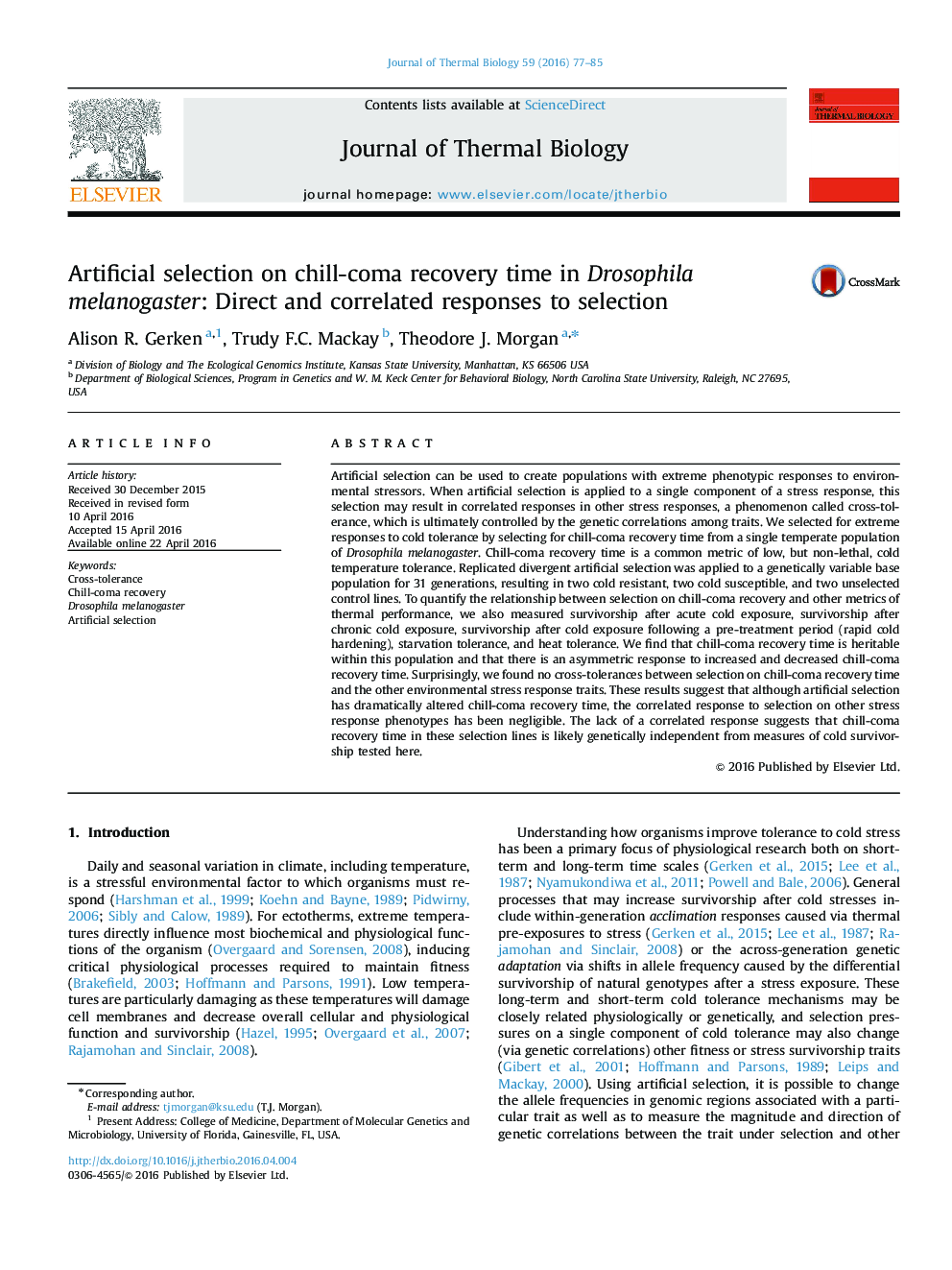| Article ID | Journal | Published Year | Pages | File Type |
|---|---|---|---|---|
| 2842681 | Journal of Thermal Biology | 2016 | 9 Pages |
•Chill-coma recovery time is heritable and selection is significant at generation 9.•Selection is asymmetrical, with greater increase in recovery time (susceptible).•We test starvation, heat, acute cold, chronic cold, and acclimated cold tolerance.•We detect no cross-tolerance with the survivorship traits we tested and CCR time.
Artificial selection can be used to create populations with extreme phenotypic responses to environmental stressors. When artificial selection is applied to a single component of a stress response, this selection may result in correlated responses in other stress responses, a phenomenon called cross-tolerance, which is ultimately controlled by the genetic correlations among traits. We selected for extreme responses to cold tolerance by selecting for chill-coma recovery time from a single temperate population of Drosophila melanogaster. Chill-coma recovery time is a common metric of low, but non-lethal, cold temperature tolerance. Replicated divergent artificial selection was applied to a genetically variable base population for 31 generations, resulting in two cold resistant, two cold susceptible, and two unselected control lines. To quantify the relationship between selection on chill-coma recovery and other metrics of thermal performance, we also measured survivorship after acute cold exposure, survivorship after chronic cold exposure, survivorship after cold exposure following a pre-treatment period (rapid cold hardening), starvation tolerance, and heat tolerance. We find that chill-coma recovery time is heritable within this population and that there is an asymmetric response to increased and decreased chill-coma recovery time. Surprisingly, we found no cross-tolerances between selection on chill-coma recovery time and the other environmental stress response traits. These results suggest that although artificial selection has dramatically altered chill-coma recovery time, the correlated response to selection on other stress response phenotypes has been negligible. The lack of a correlated response suggests that chill-coma recovery time in these selection lines is likely genetically independent from measures of cold survivorship tested here.
